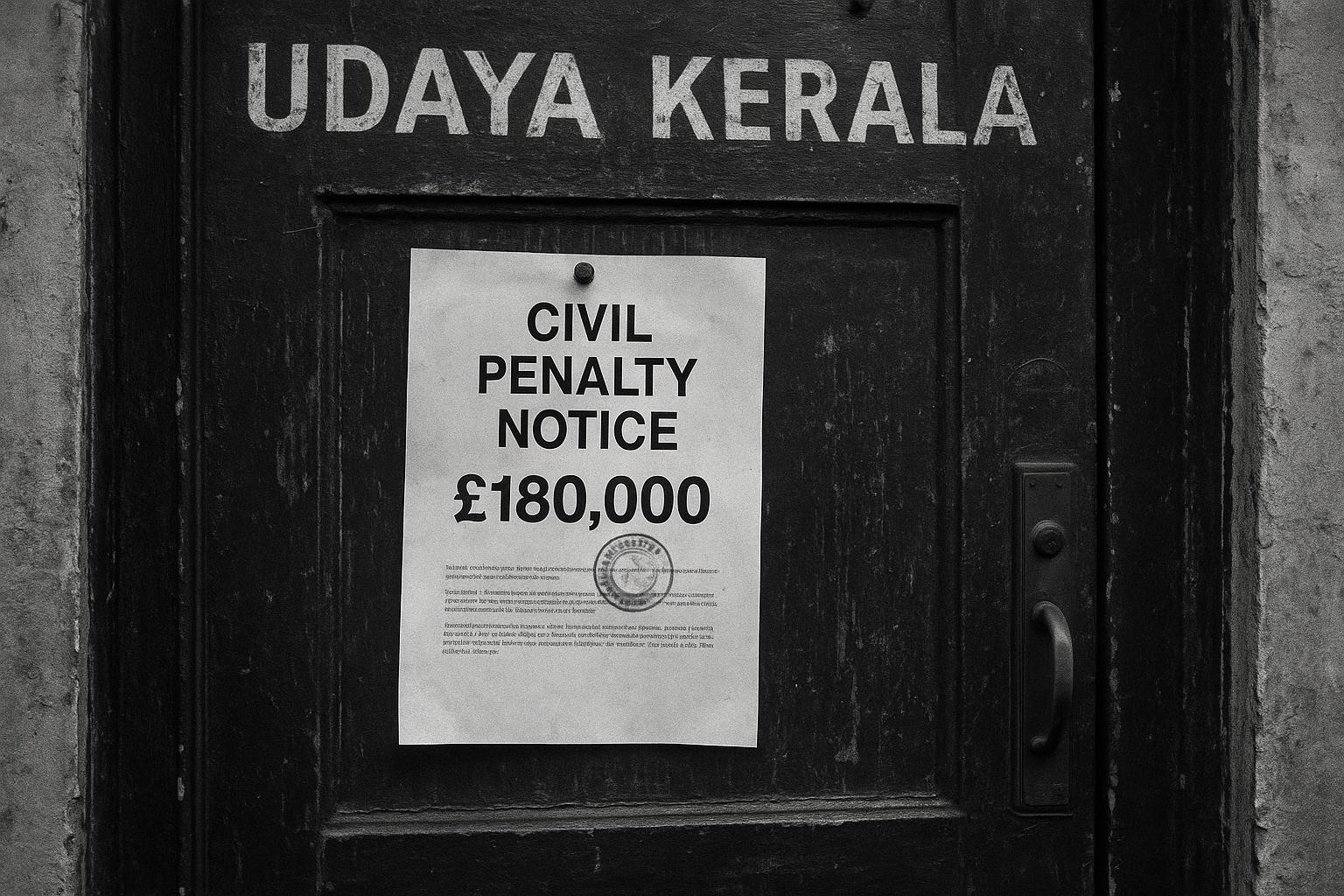Sir Stephen Timms has urged Newham’s licensing sub‑committee not to revoke the premises licence for Udaya Kerala Restaurant in East Ham after a Home Office immigration raid found four staff members working without the right to do so. According to the Evening Standard, the business has been hit with a civil penalty of £180,000 and the Home Office has applied for licence revocation. The MP wrote directly to the committee asking members to weigh the consequences of any punitive action for the restaurant and the local community.
In his letter, Sir Stephen argued that the committee should consider the remedial steps the restaurant says it has taken to remedy the breach. The Evening Standard reports the owner told the paper the business has introduced verified right‑to‑work checks, strengthened staff training and begun regular audits. “I hope the [committee] will take into account the steps the business has taken to rectify its mistake, the serious consequences that revoking the licence would have for its future, and the loss that would be suffered by the local community,” the MP wrote to the licensing committee, according to the report. The restaurant, which has traded in East Ham since 1999, is well regarded locally for its Keralan dishes and is described in foodie guides as a valued neighbourhood eatery.
The case comes against a backdrop of stepped‑up illegal working enforcement by the Home Office. Official statistics covering activity between 5 July 2024 and 31 May 2025 show a marked increase in visits and arrests since the general election, recording some 9,000 enforcement visits, 6,410 arrests for suspected illegal working and 1,921 civil penalties issued in that period, with a notable rise in activity in London. Government commentary frames this as part of a broader enforcement drive and the “Plan for Change” priorities.
That stricter environment follows policy changes to civil penalties introduced at the start of 2024. An equality impact assessment published by the Home Office set out revised maximum fines under the right‑to‑work and right‑to‑rent regimes — raising the top level of civil penalties to £45,000 per illegal worker for a first breach and up to £60,000 for repeat breaches. The assessment makes clear those maximums apply in particular circumstances and that mitigating factors, including corrective action, can reduce the final penalty.
Local licensing practice in Newham has already reflected tougher enforcement. Newham Council’s own records show licensing sub‑committee hearings in March 2025 led to licence revocations for some East Ham premises, suspensions for others and additional licence conditions after Immigration Enforcement found illegal workers; councillors cited safeguarding concerns and the borough’s modern slavery strategy in justifying firm action. Those decisions demonstrate how licensing authorities are using powers to address the perceived risks associated with illegal working, including exploitation and harm to legitimate local employment.
The Home Office also publishes quarterly illegal working penalties reports that list employers served with civil penalty notices and set out enforcement outcomes, a transparency measure intended to deter non‑compliance and inform local and national analysis. While the restaurant’s owner insists corrective measures are now in place, the £180,000 penalty reported by the Evening Standard is an example of the large sums employers may face under the current enforcement regime.
The dispute now turns on the licensing committee’s assessment of risk versus mitigation: whether the steps the restaurant says it has taken are sufficient to protect staff and the public and to satisfy licensing objectives, or whether revocation is necessary as a deterrent and safeguarding response. The case illustrates the balancing act confronting local authorities and the Home Office — enforcing immigration rules while weighing the social and economic impact on established local businesses and the communities they serve.
📌 Reference Map:
##Reference Map:
- Paragraph 1 – [1], [2]
- Paragraph 2 – [1], [2], [7]
- Paragraph 3 – [6]
- Paragraph 4 – [3]
- Paragraph 5 – [5]
- Paragraph 6 – [4], [1]
- Paragraph 7 – [1], [5], [6]
Source: Noah Wire Services
